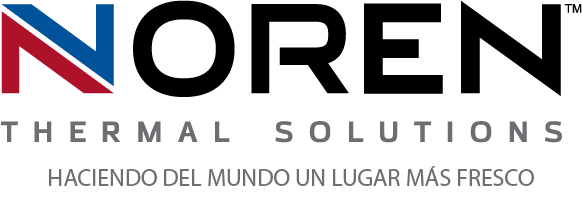 The ability to cut their dependence on traditional electrical thermal management solutions was one of the main reasons companies throughout every industry have turned increasingly more to heat exchangers. However, streamlining their thermal management has proven beneficial far beyond eliminating air conditioners and air compressing units. Thanks to their ability to efficiently transfer high levels of electrical waste heat, and to do so safely and in an eco-friendly manner, heat exchangers have had a significantly more positive impact on everything from energy consumption to overall productivity, and more.
The ability to cut their dependence on traditional electrical thermal management solutions was one of the main reasons companies throughout every industry have turned increasingly more to heat exchangers. However, streamlining their thermal management has proven beneficial far beyond eliminating air conditioners and air compressing units. Thanks to their ability to efficiently transfer high levels of electrical waste heat, and to do so safely and in an eco-friendly manner, heat exchangers have had a significantly more positive impact on everything from energy consumption to overall productivity, and more.
They make electrical cooling less cumbersome
Cooling electrical equipment, especially large manufacturing equipment, is no small feat. The cumbersome nature of solutions like air conditioners make it even more challenging. However, heat exchangers don’t require large, complicated machinery to operate, and they can be added to virtually any type of electrical enclosure with equally effective and efficient results. Their simplified heat transfer methods (i.e., using convection and phase-change cooling instead of air conditioning) mean heat exchangers can also be designed to fit within tight, unique dimensions to optimize space.
They’re virtually automated
The processes that heat exchangers use to transfer heat continue almost automatically. For example, in many types of units, fluid absorbs waste heat, flows away, and dissipates the heat safely (such as into a heat sink) before circulating back to collect more waste heat, all within a closed loop. This makes the thermal management technology nearly automated, and heat exchangers can operate for several years without ever needing repairs or replacement. They also require minimal maintenance so employees can focus on other matters.
They can make waste heat useful
When implemented correctly, heat exchangers optimize a company’s energy usage as well as its productivity, and in many cases, they do so through more than energy-efficient heat transfer. For example, heat exchangers can often allow companies to redirect electrical waste to be utilized elsewhere, such as in wastewater treatment or pharmaceutical processing. Relying more on in-house energy sources reduces overall costs, often substantially, which helps companies invest in improving productivity elsewhere.
For more information about how heat exchangers can have a positive impact on overall productivity, call Noren Thermal Solutions in Taylor, TX, at 866-936-6736.







